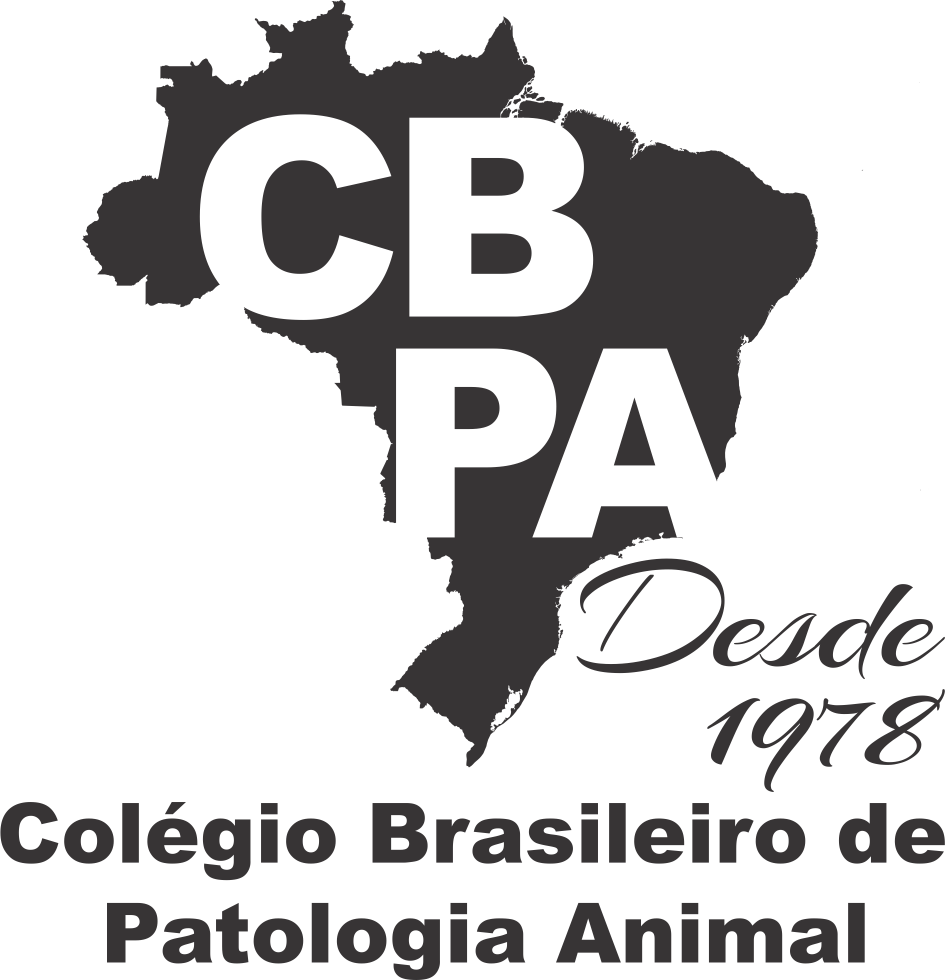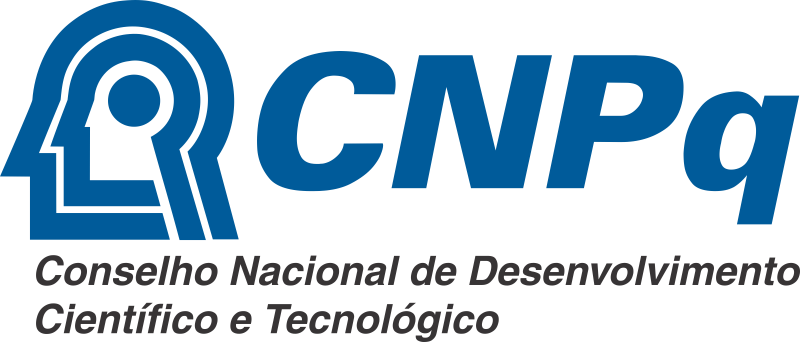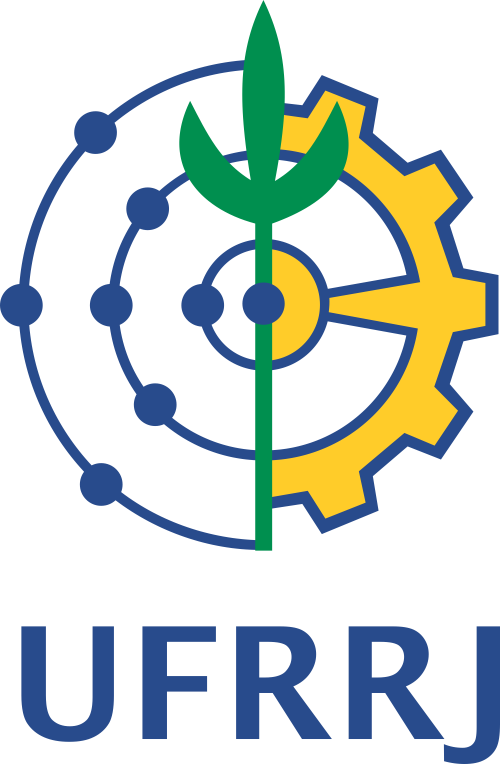Resultado da pesquisa (3)
Termo utilizado na pesquisa imunoestimulante
#1 - Immunostimulant supplementation for bitches with malignant mammary tumor: hematological and biochemical aspects, 37(4):346-354
Abstract in English:
ABSTRACT.- Oliveira V.F., Lobo J.R., Oliveira H.F., Bertão A.C.S., Moura D.N.A., Fioravanti M.C.S. & Borges N.C. 2017. [Immunostimulant supplementation for bitches with malignant mammary tumor: hematological and biochemical aspects.] Suplementação com imunoestimulante em cadelas com neoplasia mamária maligna: aspectos hematológicos e bioquímicos. Pesquisa Veterinária Brasileira 37(4):346-354. Departamento de Medicina Veterinária, Escola de Veterinária e Zootecnia, Universidade Federal de Goiás, Campus Samambaia, Avenida Esperança s/n, Campus Universitário, Goiânia, GO 74690-900, Brazil. E-mail: joycerl@hotmail.com
Functional foods have been used as adjuvant for breast cancer treatment of bitches. The aim of the present study was to evaluate hematological and clinical biochemistry response in female dogs diagnosed with malignant mammary tumors and supplemented with functional food. After the mastectomy, 16 bitches were divided into two groups: supplemented (S) and none supplemented (NS) with a commercial product of Saccharomyces cerevisiae, mannanoligosaccharides and nutraceuticals. Chemotherapy with doxorubicin and carboplatin was performed alternately at intervals of 21 days for eight sessions during 168 days of treatment. Clinical and laboratorial assessments was made at the treatment moments. The results of the hemogram (erythrogram, leukogram and platelet count) and serum biochemistry (urea, creatinine, albumin, total and direct bilirubin, alanine aminotransferase, alkaline phosphatase and gamma glutamyltransferase - GGT) were analyzed by Kruskal Wallis test. In the S group, increase body weight was observed, but gastrointestinal disorders or other clinical disorders were not detected over the treatment. In the NS group, loss of weight and clinical disorders were observed. All hematology parameters were normal in the S group; however, leukopenia and lymphopenia were detected in the bitches of the NS group. Among all the clinical biochemistry parameters tested, only serum GGT was increased in the NS group, with no changes in the S group. In conclusion, female dogs with mammary tumor supplemented with immunostimulant functional food have better clinical condition, they demonstrate normal levels of hematological and biochemical exams, particularly GGT.
Abstract in Portuguese:
RESUMO.- Oliveira V.F., Lobo J.R., Oliveira H.F., Bertão A.C.S., Moura D.N.A., Fioravanti M.C.S. & Borges N.C. 2017. [Immunostimulant supplementation for bitches with malignant mammary tumor: hematological and biochemical aspects.] Suplementação com imunoestimulante em cadelas com neoplasia mamária maligna: aspectos hematológicos e bioquímicos. Pesquisa Veterinária Brasileira 37(4):346-354. Departamento de Medicina Veterinária, Escola de Veterinária e Zootecnia, Universidade Federal de Goiás, Campus Samambaia, Avenida Esperança s/n, Campus Universitário, Goiânia, GO 74690-900, Brazil. E-mail: joycerl@hotmail.com
Os alimentos funcionais têm sido empregados como adjuvantes no tratamento do câncer de mama. Neste estudo avaliaram-se as respostas hematológicas e bioquímicas clínicas à ação de um alimento funcional administrado a cadelas com diagnóstico de neoplasia mamária maligna. Após a mastectomia, 16 cadelas foram divididas em dois grupos: suplementadas (S) e não suplementadas (NS) com um composto comercial contendo Saccharomyces cerevisiae, mananoligossacarídeos e nutracêuticos. Ambos grupos receberam tratamento quimioterápico com doxorrubicina e carboplatina, alternadamente, em intervalos de 21 dias, por oito sessões, totalizando 168 dias de tratamento. As avaliações clínicas e laboratoriais foram realizadas nos momentos de aplicação do tratamento. Os resultados dos perfis hematológico (hemograma, leucograma e plaquetograma) e bioquímico sérico (ureia, creatinina, albumina, bilirrubina total e direta, alanina aminotransferase, fosfatase alcalina e gama glutamiltransferase - GGT) foram analisados pelo teste de Kruskall Wallis. No grupo S comprovou-se elevação do peso corporal e não foram observados transtornos gastrointestinais ou outros sinais de alteração clínica ao longo do tratamento. Diferentemente no grupo NS, ocorreu perda de peso e alterações clínicas, como diarreia e vômito. No quadro hematológico, constatou-se leucopenia por linfopenia no grupo de cadelas NS e preservação do valores dentro dos parâmetros considerados normais para a espécie no grupo S. Dentre todas as variáveis da bioquímica clínica, constatou-se apenas a elevação da atividade sérica da GGT nos animais do grupo NS, sem alterações no grupo S. Conclui-se que cadelas com neoplasia mamária quando suplementadas com com alimento funcional imunoestimulante apresentam melhor condição clínica, hematológica e dos níveis bioquímicos, particularmente da GGT.
#2 - Immunomodulatory effects of dietary β-glucan in silver catfish (Rhamdia quelen)
Abstract in English:
The immunomodulatory effects of dietary β-glucan were evaluated in silver catfish. β-glucan was added to the diet (0.01%, and 0.1%) and fed to the fish for 21 days, to evaluate effects on blood and some innate immune parameter, or fed for 42 days, to evaluate growth rate and resistance to challenge with pathogenic Aeromonas hydrophila. We found that adding β-glucan to the diet had no effect on fish growth and no effect on blood cells, or serum bacterial agglutination and serum myeloperoxidase activity. However, fish that received β-glucan in the diet had the natural hemolytic activity of complement significantly higher compared to control fish. Furthermore, fish fed with β-glucan and challenged with A. hydrophila had fewer bacteria in blood and presented a significantly higher survival rate compared to control fish. Thus, we concluded that β-glucan might be explored as feed additive aiming to improve silver catfish innate immunity and resistance to specific pathogen.
Abstract in Portuguese:
O uso da β-glucana como suplemento alimentar foi avaliado em jundiás. A β-glucana foi adicionada à ração na proporção de 0.01%, e 0.1% e fornecida aos peixes por 21, para avaliar dados hematológicos e parâmetros do sistema imune natural, ou 42 dias, para avaliar ganho de peso e resistência ao desafio com Aeromonas hydrophila. A adição da β-glucana na dieta não afetou o ganho de peso e não induziu alterações hematológicas nem alterações nos níveis de aglutininas e mieloperoxidase sanguínea. No entanto, a atividade hemolítica natural do sistema do complemento foi significativamente maior nos peixes alimentados com β-glucana. Além disso, nos peixes alimentados com β-glucana e desafiados com A. hydrophila, o número de bactérias isoladas do sangue foi significativamente menor, e a sobrevivência ao desafio foi significativamente maior do que nos peixes que não receberam β-glucana. Consequentemente, concluímos que a β-glucana tem potencial imunomodulador quando adicionada à dieta, nas condições experimentais aqui indicadas, e contribui para aumentar imunidade natural e a resistência dos jundiás ao desafio com patógenos específicos.
#3 - Effect of oral administration of Propionibacterium acnes on growth performance, DTH response and anti-OVA titers in goat kids, 33(1):5-10
Abstract in English:
ABSTRACT.- Ferrer L.M., Fernández A., Loste A., Ortín A., Lacasta D., Ramos J.J., Verde M.T. & Conde T. 2013. Effect of oral administration of Propionibacterium acnes on growth performance, DTH response and anti-OVA titers in goat kids. Pesquisa Veterinária Brasileira 33(1):5-10. Departamento de Patología Animal, Facultad de Veterinaria, Universidad de Zaragoza, Miguel Servet 177, 50013-Zaragoza, Spain. E-mail: afmedica@unizar.es
Immunostimulants are susbstances that stimuli the response of effector cells to activate the immune response such as antigen uptake, cytokine release or antibody response. These substances can increase resistence to infection by different types of microorganisms, reducing dependence of antibiotics used in livestock animals. Recent reports have demonstrated the positive effect of Propionibacterium acnes (P. acnes) to control animal diseases. In this study, we evaluated the effect of the non-specific immunostimulant P. acnes on immunological functions and growth performance in goat kids. Twenty five goat kids served as control group (A) and another 25 animals received P. acnes being the experimental group (B). Kids were challenged with ovalbumin (OVA) to assess humoral immunity. To assess in vivo cell immunity, delayed type hypersensitivity (DTH) test with phytohemagglutinin (PHA) was used, clinical signs and body weight were recorded each week until 9 weeks of age when the experiment ended. Blood samples were obtained to analyze serum proteins fractions and anti-OVA specific antibodies. No clinical signs of disease and no differences (p>0.05) on body weight between groups were recorded (7.32±0.81 kg in group A, 7.13±0.65 kg in group B). Goat kids from group B had more total protein (59.8±5g/l) and albumin levels (32.8±3.3g/l) than goat kids from group A (56.6±5.7 g/l, 29.6±3.9 g/l respectively) (p<0.05). DTH response in goat kids from group B on day 42 was higher (p<0.05) than group A. At day 63, goat kids from group receiving P. acnes had higher percentage (85.4) of anti-OVA IgM titers (p<0.05) than control group (57.7). In conclusion, the results showed that oral administration of P. acnes to goat kids improved some aspects of the immune system of the animals and it could be used to control goat diseases.
Abstract in Portuguese:
ABSTRACT.- Ferrer L.M., Fernández A., Loste A., Ortín A., Lacasta D., Ramos J.J., Verde M.T. & Conde T. 2013. Effect of oral administration of Propionibacterium acnes on growth performance, DTH response and anti-OVA titers in goat kids. Pesquisa Veterinária Brasileira 33(1):5-10. Departamento de Patología Animal, Facultad de Veterinaria, Universidad de Zaragoza, Miguel Servet 177, 50013-Zaragoza, Spain. E-mail: afmedica@unizar.es
Immunostimulants are susbstances that stimuli the response of effector cells to activate the immune response such as antigen uptake, cytokine release or antibody response. These substances can increase resistence to infection by different types of microorganisms, reducing dependence of antibiotics used in livestock animals. Recent reports have demonstrated the positive effect of Propionibacterium acnes (P. acnes) to control animal diseases. In this study, we evaluated the effect of the non-specific immunostimulant P. acnes on immunological functions and growth performance in goat kids. Twenty five goat kids served as control group (A) and another 25 animals received P. acnes being the experimental group (B). Kids were challenged with ovalbumin (OVA) to assess humoral immunity. To assess in vivo cell immunity, delayed type hypersensitivity (DTH) test with phytohemagglutinin (PHA) was used, clinical signs and body weight were recorded each week until 9 weeks of age when the experiment ended. Blood samples were obtained to analyze serum proteins fractions and anti-OVA specific antibodies. No clinical signs of disease and no differences (p>0.05) on body weight between groups were recorded (7.32±0.81 kg in group A, 7.13±0.65 kg in group B). Goat kids from group B had more total protein (59.8±5g/l) and albumin levels (32.8±3.3g/l) than goat kids from group A (56.6±5.7 g/l, 29.6±3.9 g/l respectively) (p<0.05). DTH response in goat kids from group B on day 42 was higher (p<0.05) than group A. At day 63, goat kids from group receiving P. acnes had higher percentage (85.4) of anti-OVA IgM titers (p<0.05) than control group (57.7). In conclusion, the results showed that oral administration of P. acnes to goat kids improved some aspects of the immune system of the animals and it could be used to control goat diseases.








